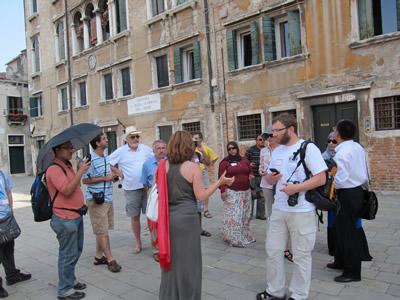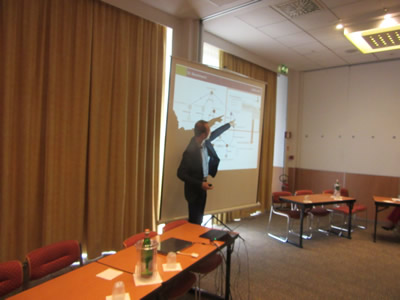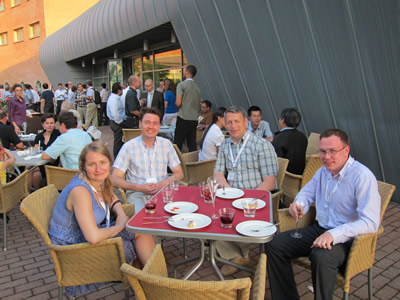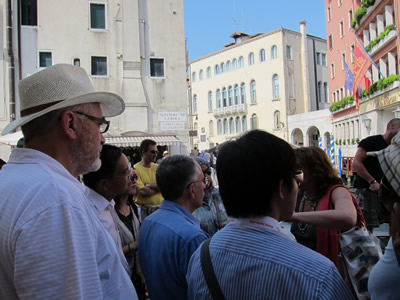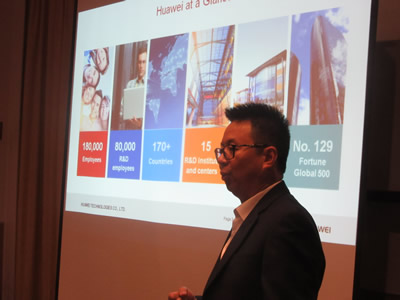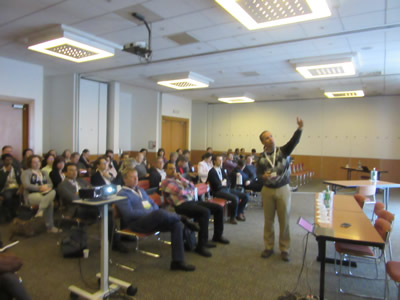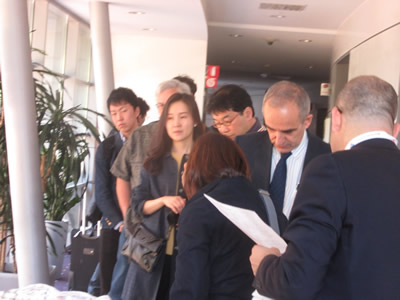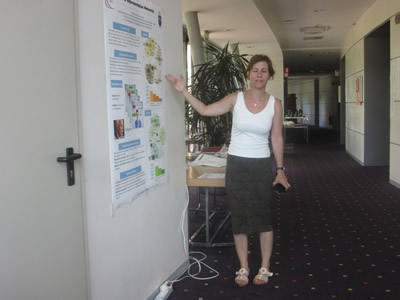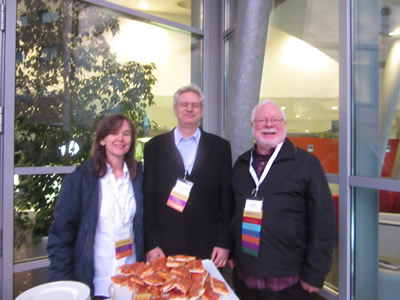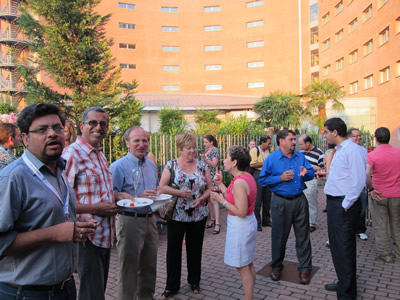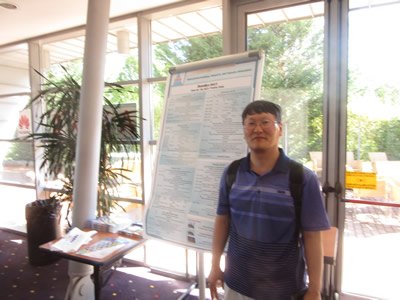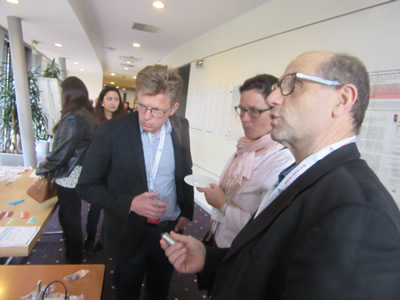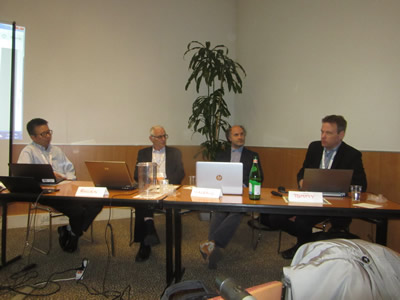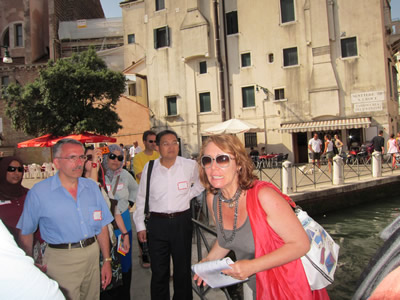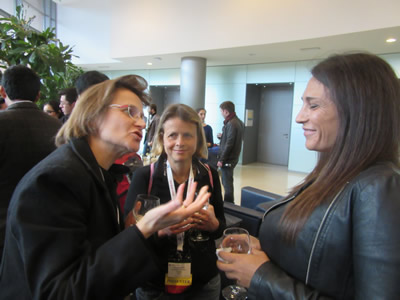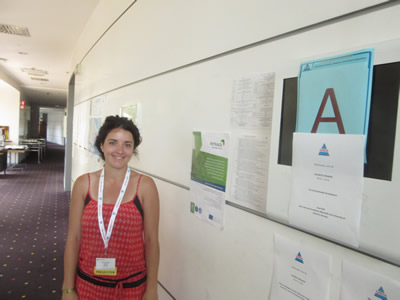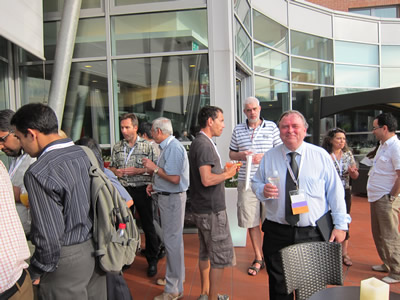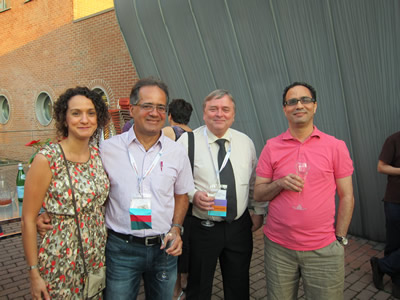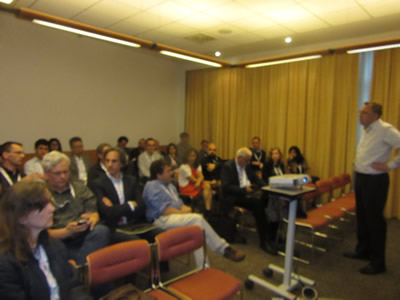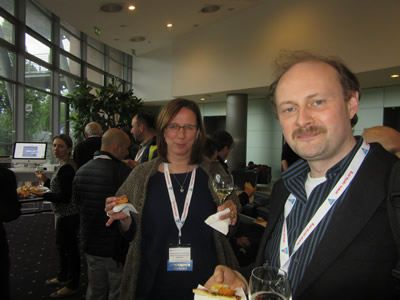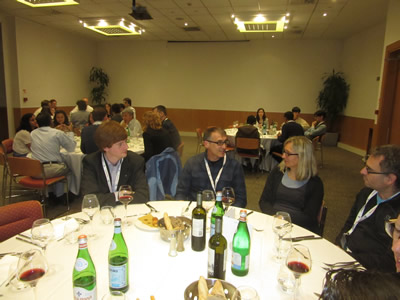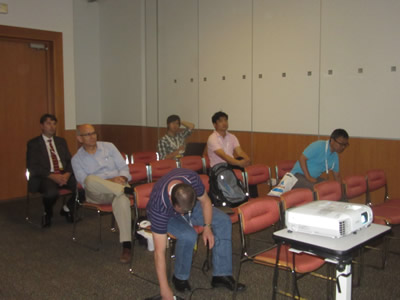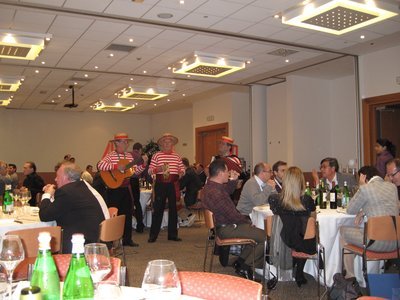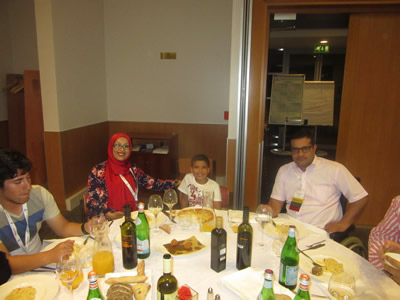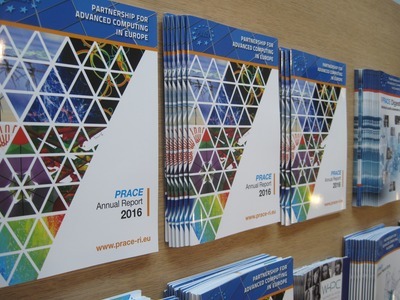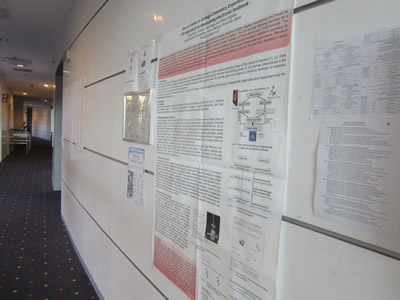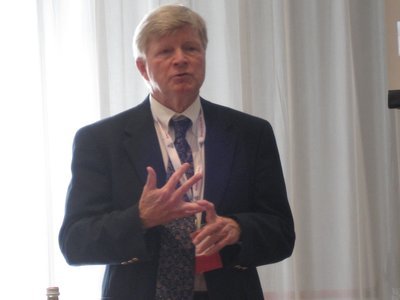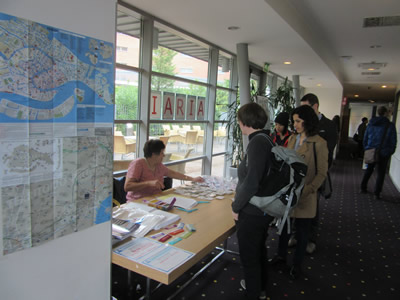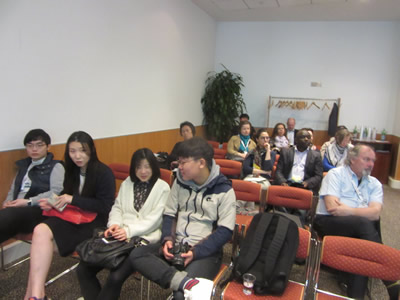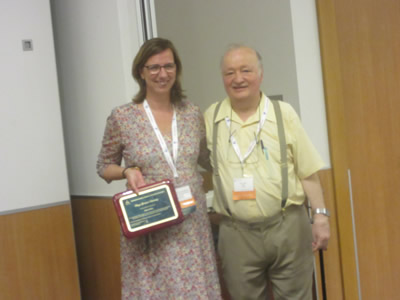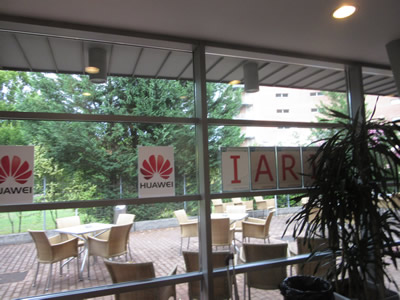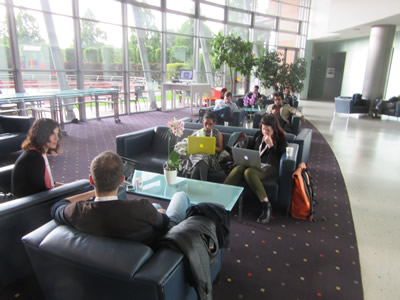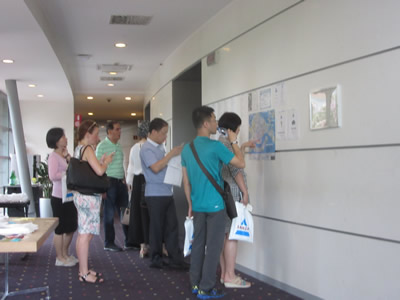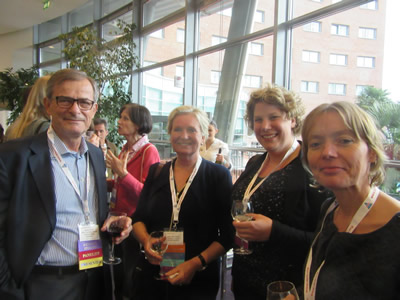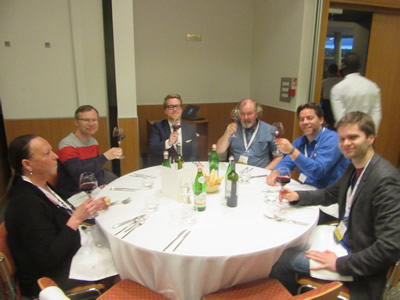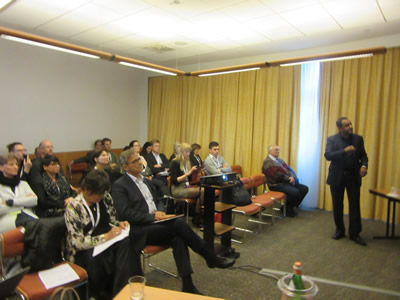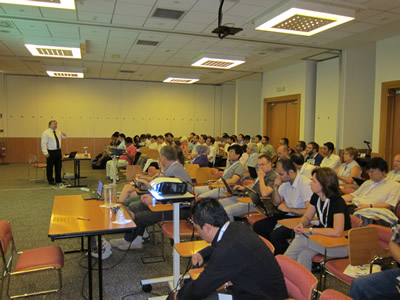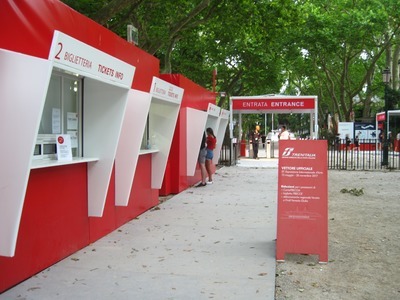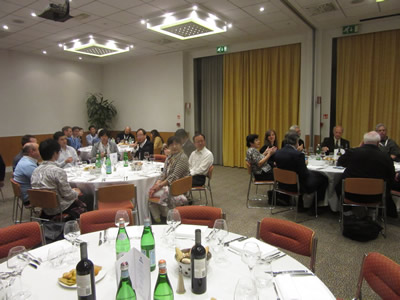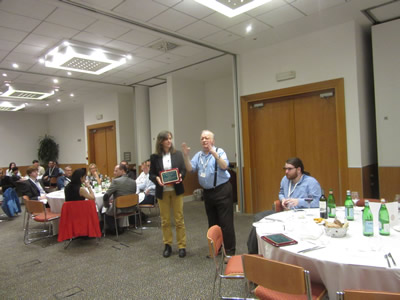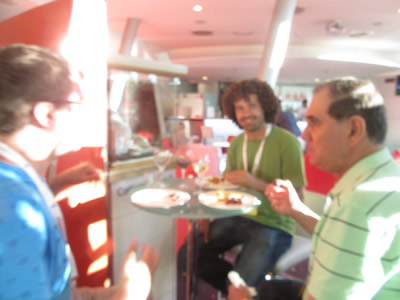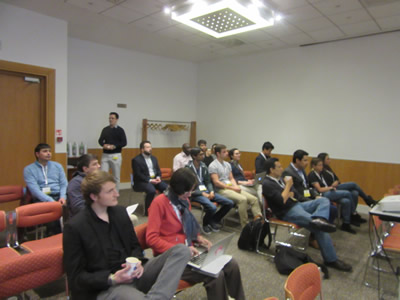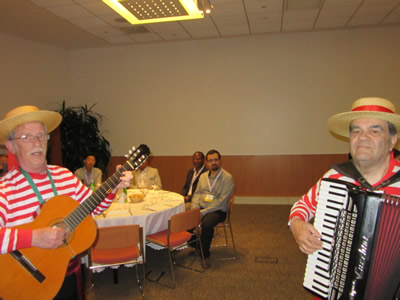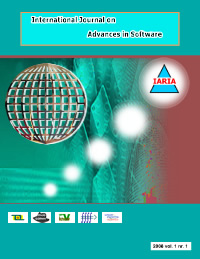SOFTENG 2026 - The Twelfth International Conference on Advances and Trends in Software Engineering
May 24, 2026 - May 28, 2026
SOFTENG 2026
Onsite and Online Options: In order to accommodate various situations, we are offering the option for either physical presence or virtual participation (pdf slides or pre-recorded videos).
ISSN: 2519-8394
ISBN: 978-1-68558-398-9
SOFTENG 2026 is colocated with the following events as part of NexComm 2026 Congress:
- ICDT 2026, The Twenty-First International Conference on Digital Telecommunications
- SPACOMM 2026, The Eighteenth International Conference on Advances in Satellite and Space Communications
- ICN 2026, The Twenty-Fifth International Conference on Networks
- ICONS 2026, The Twenty-First International Conference on Systems
- MMEDIA 2026, The Eighteenth International Conference on Advances in Multimedia
- PESARO 2026, The Sixteenth International Conference on Performance, Safety and Robustness in Complex Systems and Applications
- CTRQ 2026, The Nineteenth International Conference on Communication Theory, Reliability, and Quality of Service
- ALLDATA 2026, The Twelfth International Conference on Big Data, Small Data, Linked Data and Open Data
- SOFTENG 2026, The Twelfth International Conference on Advances and Trends in Software Engineering
SOFTENG 2026 Steering Committee
|
 |
Zeeshan Ali Rana
NUCES, Lahore
Pakistan
|
|
 |
Tsuyoshi Nakajima(中島毅)
Shibaura Institute of Technology
Japan
|
|
 |
Simona Vasilache
University of Tsukuba
Japan
|
|
|
|
|
 |
Zeeshan Ali Rana
NUCES, Lahore
Pakistan
|
|
 |
Tsuyoshi Nakajima(中島毅)
Shibaura Institute of Technology
Japan
|
|
 |
Simona Vasilache
University of Tsukuba
Japan
|
SOFTENG 2026 conference tracks:
Software requirements for smart environments and smart devices/systems
Design with software energy efficiency in mind; Software for portable devices; Synchronization constraints in smart cities systems; Combining multiple representation models; Sustainability design and apps for smart devices; Dealing with small-size screens; Software handling service recovery; Smart big data analytics as a service for smart systems; Design patterns for socially-aware computing on portable, wearable and implantable devices; Local/remote computation balance based on computation heat on wearable and implantable devices; Multithreading software for real-time scheduling smartly-equipped citizens; Software for fine grained access control with extended permissions and inheritable roles; Driving behavior prediction apps using multi-sensory data on a smartphone; Monitoring sentiment/citizens paths via open source via mobile apps; Cognitive apps for real-time mobile devices/systems; Apps for sensing human intention via self-adaptive systems; Test suites for real-time man-in-the-middle smart systems; Apps exploiting social context in personalized web-tasking applications; Testing large-scale software smart systems; Dedicated apps for smart cyber-physical systems; Prioritizing software requirements for smart environments; Software development for scaling mechanisms in smart mobile environments
Software requirements
Fundamentals on software engineering requirements;
Informal and formal representation of software requirements;
Languages, schemes, patterns, tools for gathering software requirements;
Tracking implementation for specific requirements;
Functional and non-functional requirements;
Requirements for ambient systems software;
Requirements for body networks software;
Requirements for smart devices and applications;
Requirements for wearable/implantable software;
Requirements for embedded software;
Requirements for adaptive software/systems;
Uncertainty specification in software requirements;
Requirements for software dedicated to Internet of Things;
Special requirements for data centers and cloud applications; Requirements for mobile software; Tools for requirements gathering; Requirements tracking tools; Tools for requirements conflict detection
Software designing and production
Methodologies and tools for software design and deployment;
Agile development; Model-driven software development and DSL design; Software design for interactive applications;
Software design for web-driven services;
Combining classical and Agile software development methods;
Empirical software engineering methods;
Specific methods for dedicated software;
Formal models and methods;
Parallel programming; Visual tools; Empirical distribution parameters;
Package management systems; Crowdsourcing software development;
Model checking specifications;
Software product lines; Tools and platforms for software development and deployment; Code generation environments; Specification and implementation of patterns/antipatterns
Software reuse
Software reuse approaches;
Pros and cons on software reuse;
Software reuse failures and lessons learned;
Automation and high level abstraction in software reuse;
Reusable components;
Third-party software and component reuse;
Software reuse metrics;
Reuse patterns;
Software reuse candidates (specifications, designs, tests cases, data, prototypes, plans, documentation, frameworks, and templates);
Online reuse aspects;
Weak and strong reuse;
Testing and validating reuse-based software;
Duplication and reuse;
Code clones;
Detecting and measuring similarity in code clones;
Open areas for research in software reuse
Software/hardware interfaces
General hardware/software modeling;
Hardware/software interface codesign;
Configurable and parametrized abstract interface architectures;
Multi-processor system on chip interfaces;
Interoperable hardware/software interfaces;
Interface-based design methodology;
Abstract models for concurrent hardware/software design;
Interfaces for embedded software;
Interfaces for ambient software;
Interfaces for software in mobile/smart devices;
Control flow;
Parallel processing interfaces;
Language translation modeling;
Hardware/software partitioning
Agile software organization
Agile software organization structure;
Agile teams and roles;
Generalizing agile specialists;
System integration in agile structures;
Agile analysis and design;
Scalable agile frameworks;
Performance management in agile organizations;
Metrics for agile software organization;
Business models and agile origination;
Strategy and guidance for agile software organization; Tools and guidance for agile-oriented business control
Software sustainability
Long lasting software;
Environmental impact and economic balance;
Modeling software product sustainability;
Factors affecting software sustainability;
Techniques for measuring sustainability;
Formal and informal methods for software sustainability;
Software sustainability and non-functional requirements;
Software sustainability maturity model;
Sustainable open source;
Sustainability and reliability, (self-)adaptability, maintainability, context-awareness, agility;
Software sustainability for green IT;
Energy consumption and e-waste from computers during software upgrades;
Governance models;
Software sustainability and sustainable human behaviors;
Operational risks, health and safety
Software testing and validation
Program analysis and software verification; Model-based testing; Testing system composition/orchestration; Data flow testing; Debugging and validation; Discovering vulnerabilities; Defects localization; Defects and failures in software libraries; Testing and run-time analysis based on verification technology; Testing evolving software; Testing embedded applications; Testing citizen-oriented software; Testing game software; Testing apps and on-line software; Testing web-based software; Testing mobile software; Testing software for smart devices; Testing software for wearable services/devices; Testing APIs; Testing software-intensive systems; Malpractice process models; Tools and methodologies for testing real-time software; Testing software performance; Testing for malware presence; Automatic testing methodologies; Software testing certification; Code validation; Metrics for software quality prediction
Maintenance and life-cycle management
Software rejuvenation;
Software termination;
Software duplication, redundancy;
Software versions and configuration control;
Software evolution;
Conformance and traceability;
Automated refactoring validation;
Verification techniques;
Software certification;
Managing software versions; Maintenance over cross-platforms; Maintaining evolutionary code; Validation of software configuration changes; Software patching metrics; Software evolution quality metrics; Removing unintentional implementations/features; Software visualization tools; Tasks-oriented maintenance; Updates dependency control; Maintenance for processing chains; Maintenance of clouds-based platforms; Maintenance of embedded software; Maintenance of automated tests; Maintenance of open-sources; Maintenance for legacy systems; Maintenance based on empirical evidence; Feature-to-code tracking and maintaining; Maintenance of functional and non-functional features; Maintaining user-priority features; Costs of maintenance efforts
Software reliability, robustness, safety
Metrics and measurements, estimation, prediction of quality/reliability;
Software reliability modeling;
Automatic repair;
Safety critical systems;
Software defect prediction models;
Software reliability testing;
Reliability, availability, and safety of software systems;
Risk-based testing;
Validation and verification;
Vulnerability analysis;
Software dependability;
Fault tolerance, survivability, and resilience of software systems;
Bug fixing;
Systems (hardware + software) reliability engineering;
Services reliability engineering;
Open source software reliability engineering;
Safety-critical systems;
Collision analysis to prevent hazards;
Safety, assurance, certification;
Supporting tools and automation;
Industry use cases and best practices;
Empirical studies and benchmarks
Software security
Security anomaly detection;
Detecting software sabotage;
Runtime dependability;
Threats for software libraries;
Data analytics for security verification;
Internet threats and countermeasures;
Open systems dependability;
Trusted component reuse;
Security and safety;
Trusted software;
Detecting code clones in malware;
Authentication schemes and software;
Trustworthiness in Cloud environments;
Communication integrity in critical embedded systems;
Latent security vulnerabilities
Challenges for dedicated software, platforms, and tools
Enterprise application integration; Platforms and tools for agile software; Platforms an tools for special software; Lessons learned on domain-oriented software; eHealth software;
Mobile applications;
Software for smart devices; Software for mobile devices; Assistive software;
Remote sensing software;
Touch-user interfaces;
Middleware software;
Social networks software;
Video-game software; Emerging interfaces;
User-intensive web applications;
Avionic software;
Real-time software;
Embedded software;
Simulation software;
Automotive software
Deadlines:
Submission | Feb 25, 2026 |
Notification | Mar 22, 2026 |
Registration | Apr 05, 2026 |
Camera ready | Apr 19, 2026 |
Deadlines differ for special tracks. Please consult the conference home page for special tracks Call for Papers (if any).
